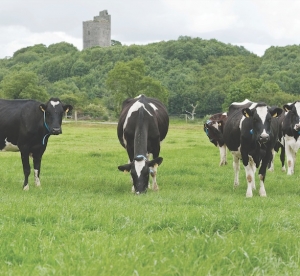Researcher Laurence Shalloo told a June 10 seminar – ‘Financial Planning for Expansion’, run by Teagasc, the Irish farming and food development authority – that increases in dairy cow and replacement heifer numbers over the past three years* show large numbers of dairy farmers are expanding.
But he questions how prepared they are financially, noting that relatively few have detailed business plans, and he highlights the ‘lag phase’ between their buying more cows and getting returns from them.
Shalloo says farmers should prioritise spending to conserve scarce cash and optimise their cashflow. Rapid expansion can generate higher returns and get cash in sooner but it’s a riskier approach than gradual expansion. Which is best will likely come down to the person and their attitude towards risk, he says.
Another seminar speaker, Donie Cashman, a dairy farmer and former president of the Irish Farmers Association, reflected on Ireland’s dairy boom in the run-up to quota being imposed in 1984.
Cashman told the audience to expect ‘shocks to the system’ and urged them to protect themselves with budgets and plans. There must be sound financial reasons for expansion with proper financial planning, close attention to management accounts and good farm practice, he stressed.
Teagasc financial management specialist Kevin Connolly called for a new view of financial planning – from it being just a means to secure finance to a management discipline feeding into multi-year financial plans.
Three major banks operating in Ireland told the audience of their experiences of funding expansion, all three highlighting the scarcity of well thought-out financial plans.
The bankers also spoke of the difference between preparing a plan to get a funding proposal ‘across the line’ versus a farmers using a plan as a tool to monitor financial performance in subsequent years.
* Dairy cow numbers in Ireland fell steadily from about 1.5m when quotas were imposed in 1984 to about 1m in 2005, remaining unchanged until 2010. Ireland’s Central Statistics Office December 2013 survey of livestock numbers report shows as steady increase since then, to 1.08m in December, with 1-2 year-old heifer numbers also up from 0.8m in December 2011 to 0.9m in December 2013, though no distinction between dairy and beef is made in the young stock data.















